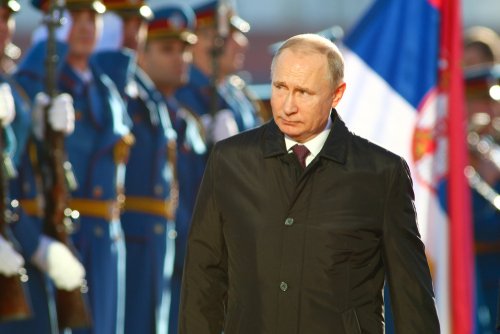Brussels (Brussels Morning) Former German federal minister Christian Schmidt took up the mantle of international High Representative for Bosnia and Herzegovina on Monday, while facing adversarial relations with Bosnian Serb politicians who, backed by Russia, claim the new HR was appointed illegally.
Schmidt succeeded Austrian diplomat Valentin Inzko, who served in the post for the past 12 years. Less than ten days ahead of the handover, Inzko stirred controversy in BH by instituting a law which criminalises genocide denial and the glorification of war criminals.
Many Bosnian Serb leaders openly deny or downplay the 1995 Srebrenica genocide, where more than 8,000 Muslim men and boys were slaughtered by the forces of the Republic of Srpska, which today is a separate entity within BH. RS leader Milorad Dodik, an ally of Moscow, denounced Inzko’s law and reported himself for genocide denial last week.
On Friday, the RS Assembly voted in two new laws. One criminalises denigrating the entity and describing it as “genocidal”. The other forbids local law enforcement and judiciary from implementing and acting upon Inzko’s genocide denial law.
As Schmidt arrived in Bosnia and Herzegovina, he faced a Serb boycott of the country’s federal institutions, with Dodik telling him he was “not chosen as the High Representative” and emphasising that the Republic of Srpska “will not respect anything” he does.
The position of High Representative was created by the 1995 Dayton Agreement to serve as the civilian guardian of the peace treaty with powers to repeal and introduce laws and remove politicians from office, powers that were seldom used in the past years. The HR is appointed by the 11-member Steering Board of the Peace Implementation Council, an international body of more than 50 countries and international organisations.
Following Inzko’s decision to resign earlier this year, Russia opposed Schmidt’s appointment and called for confirmation of his appointment by the UN Security Council, where Russia holds veto power. While UNSC confirmation is not required for an appointment, it appears to have been part of a PR strategy on behalf of Moscow to claim Schmidt’s appointment was illegal.
The Russian Embassy in BH announced on Saturday that “all who intend to cooperate with” Schmidt are doing so “on their own risk, and at their own responsibility”, describing the former Minister of Transport as “a German citizen who refers to himself as a High Representative”. The Russian Embassy also claims that Inzko’s mandate ended with his resignation, which would mean that his genocide denial law would also be invalid, since he had no legal power to introduce it.




